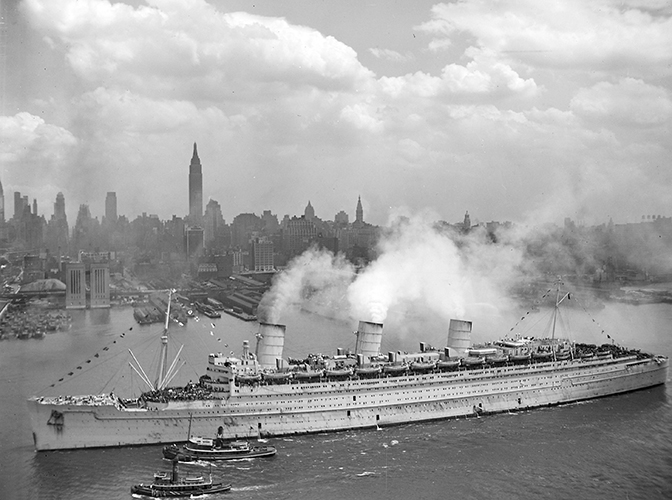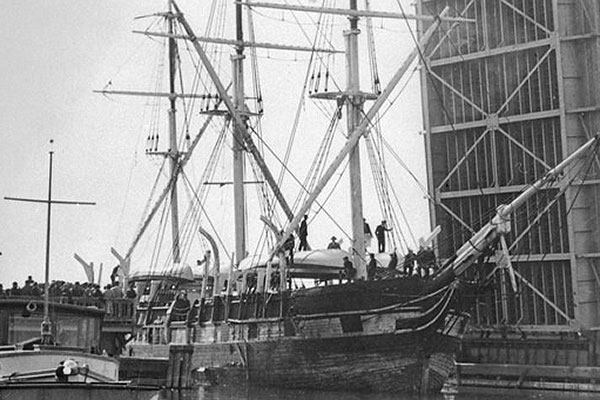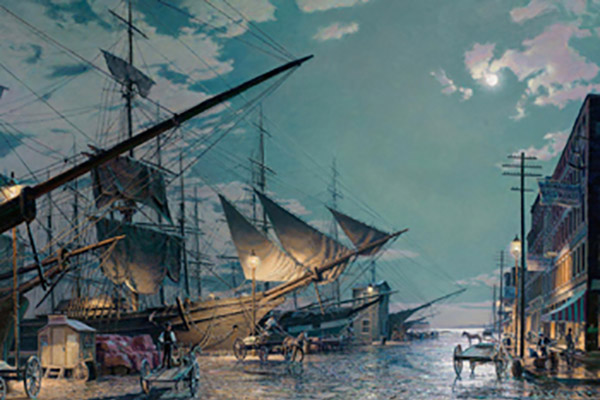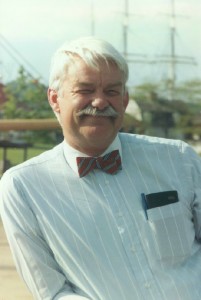LATEST NEWS
Port of New York in World War II: Seminar with Joseph F. Meany Jr. 30 January 2016
The Port of New York in World War II
With Joseph F. Meany Jr., New York State Historian Emeritus
Saturday, 30 January 2016
Hendrick Hudson Library – 25 Kings Ferry Road, Montrose, NY 10548
Continental breakfast is at 10:30 AM. Presentation is at 11:00 AM.
 Please Note: this event was originally scheduled for 23 January, but was postponed to 30 January due to inclement weather.
Please Note: this event was originally scheduled for 23 January, but was postponed to 30 January due to inclement weather.
The Second World War is considered the most significant historical event of the twentieth century. For New Yorkers, the war came closest to home in New York Harbor, from which 1,462 convoys sailed into the uncertain waters of the North Atlantic. Joe Meany will explore the wartime port and suggest a framework for understanding its history. Its 650 miles of waterfront, 1,800 docks, 1,100 warehouses, and concentration of training facilities constituted priceless resources, while posing complex problems in its management. He will tell us about the two installations that dominated the port: the NY Port of Embarkation, which funneled three million troops and their equipment to the New York docks for deployment overseas, and the Brooklyn Navy Yard, the greatest naval shipyard in the world and the largest industrial plant in New York State. We’ll also learn more about wartime New York City, the world’s most popular liberty port.
We will hear stories about the people of the port, like Capt. Frederick Reinicke, USN, a retired naval officer recalled to active duty upon the declaration of national emergency in May, 1940 (following Dunkirk). Deemed too old for a sea command, he was instead handed the most demanding maritime management job in history, that of Port Director, New York. Reinicke activated the office on 8 October 1940. He was given a chief petty officer, a civilian secretary, and a one-room office. By 8 May 1945, the day hostilities ceased with Germany, his office occupied four floors of the Whitehall Building at 17 Battery Place overlooking the upper bay, and composed over 1,200 naval personnel actively engaged in managing the world’s biggest marine traffic job.
Reinicke personally chaired the sometimes twice-weekly convoy conferences held the afternoon before a convoy departed. Ship masters met their convoy and escort commanders, and ship’s radio officers received their codes and ciphers. Following the conference, no contact with the outside world was permitted. They were escorted by armed guard across Battery Park to the Fleet Landing Basin (now site of the merchant marine memorial) where motor whaleboats returned them to their ships. For some, it was their last contact with their country.
Capt. Reinicke saw them all off. He completed the war and returned to retirement in 1945.
The public is invited. Please contact the National Maritime Historical Society at 914 737-7878, ext. 0, or email nmhs@seahistory.org if you plan to attend. A $5 to $10 donation is appreciated. If you would also like to join NMHS and the speaker for lunch following the presentation, it is $25 prepaid, with cash bar. Reservations required.
For more information on the complete lineup of seminars as it is finalized, please check back with the Charles Point Council page for ongoing updates.
Category:








